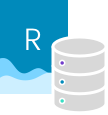On January 21, 2020, at the 61st CENTR Legal & Regulatory workshop in Brussels, Belgium, I&J Executive Director Bertrand de La Chapelle explained the appropriate parameters of action on content abuse at the DNS Level and the due diligence required. The event discussed current global trends on combating illegal content online and third-party notifiers in tackling abuse on DNS level.
Examples of actions on the DNS level to tackle content abuses proliferate, such as the Christchurch takedown, child sexual abuse imagery, and recent legislative trends such as the CDA 230 & DSA, the European Union E-Commerce Directive and the European Union proposal Preventing the Dissemination of Terrorist Content Online. CENTR, as the Council of European National Top Level Domain Registries promotes and participates in the development of high standard of Internet Country Code Top-Level Domain Registries (ccTLDs) for the benefit of its members and the Internet. The organization is closely evaluating and following a number of key initiatives by the European Commission, including the Digital Services Act and whether this new legislation will revise the online intermediary landscape to encompass actors and actions at the DNS level.
Presenting the work of stakeholders participating in the Domains & Jurisdiction Program of the Internet & Jurisdiction Policy Network, Mr. La Chapelle, noted that action on content abuse at the DNS Level may only be justified if a particularly high threshold of abuse/harm is demonstrated regarding, inter alia:
- the degree of global normative consistency regarding the alleged abuse, i.e. whether the content is considered illegal across a sufficient number of jurisdictions (e.g. child sexual abuse imagery)
- the proportion of the site dedicated to the objectionable content
- the manifest intended purpose or bad faith of the registrant
- the lack of available alternative measures to remediate the situation
The issue of addressing abusive content on the Internet is addressed in two of the Internet & Jurisdiction Policy Network’s Programs. The Domains & Jurisdiction Program addresses topics such as level of action, proper notices (formats for notification and substantive due diligence by notifiers), types of actions available at the DNS level and procedural guarantees including reversibility and recourse. It is also a key topic in the Content & Jurisdiction Program which works on identification, evaluation, action and recourse for abusive content takedown.
In 2019, members of the Internet & Jurisdiction Policy Network Program Contact Groups from states, internet companies, technical operators, civil society, academia and international organizations, developed a set of voluntary policy standardsthat include Norms, Criteria and Mechanisms for cross-border content moderation and restrictions and cross-border DNS-level action to address abuses.
The topical trends presented in theInternet & Jurisdiction Global Status Report 2019, launched at the 14th UN Internet Governance Forum in Berlin, Germany, in November 2019 were also shared at the event as an innovative mapping of internet and jurisdiction related policy trends, actors and initiatives.
I&J Executive Director Presents the Appropriate Parameters of Action on Content Abuse at the DNS Level
Published on


